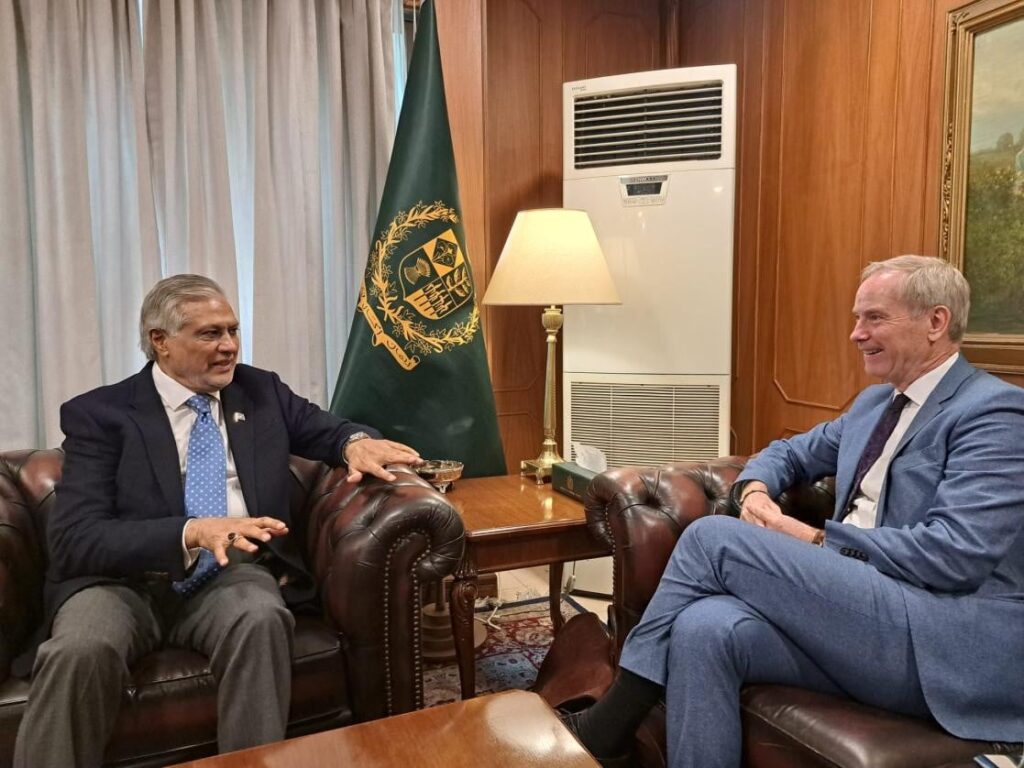ISLAMABAD:
A top European Union official on Friday linked trade benefits under the GSP+ regulation for Pakistan with achieving progress on a list of issues, including human rights and tangible reforms.
EU Special Representative for Human Rights Ambassador Olof Skoog carried out a week-long visit to Pakistan. The mission aimed to engage Pakistan on the most pressing human rights and labour rights issues and discussing Pakistan’s plans to address them, including in view of the ongoing assessment under the GSP+ trade scheme.
During his visit, Ambassador Skoog held meetings with federal and provincial government ministers, the military leadership, senior officials, United Nations bodies, human rights defenders and lawyers, civil society organisations, media representatives and the business sector.
The special representative reaffirmed the EU’s commitment to supporting Pakistan in meeting its human rights obligations and, in this regard, encouraged diligent efforts and meaningful consultations with all stakeholders, including the country’s vibrant civil society.
“Pakistan remains a key partner for the EU in South Asia. Our relationship is built on shared values of democracy, human rights, and the rule of law, guided by the principles of the UN Charter and international norms.
“The EU welcomes the fact that Pakistan has become the largest beneficiary of GSP+, with Pakistani businesses increasing their exports to the EU market by 108% since the launch of the trade scheme in 2014,” read a statement issued here on Friday by the EU Mission in Pakistan.
“As we approach the midterm of the current monitoring cycle, we encourage Pakistan to continue on its reform path as it prepares for reapplication under the upcoming new GSP+ regulation,” the statement said.
“The trade benefits under GSP+ depend on the progress made on addressing a list of issues, including on human rights, and tangible reforms remain essential,” it added.
According to the statement, in meetings with Pakistan’s senior interlocutors, including the Deputy Prime Minister and Foreign Minister Ishaq Dar, Federal Minister of Law, Justice and Human Rights Azam Nazeer Tarar and Federal Minister of Commerce Jam Kamal Khan, Ambassador Skoog highlighted areas of concern such as the application of blasphemy laws, women’s rights, forced marriages and conversions, enforced disappearances, freedoms of expression, religion or belief, independence of the media, impunity for rights violations, due process and the right to a fair trial, civic space, and the death penalty.
In the meeting with Chief Justice of Pakistan, Justice Yahya Afridi, the focus was on the judicial backlog as well as the integrity and independence of the judiciary.
Throughout his visit, the representative acknowledged the important role of the National Commission of Human Rights and underlined the need to preserve its independence.
In the context of the upcoming GSP+ monitoring mission, the official encouraged Pakistani authorities to ensure implementation of all relevant international conventions.
As part of his itinerary, Ambassador Skoog also visited Lahore to meet with key stakeholders, including Punjab Chief Minister Maryam Nawaz Sharif and Minister for Minorities Affairs in Punjab, Sardar Ramesh Singh Arora, as well as representatives of the Christian and Ahmadi communities.
The discussions centred on freedom of religion or belief, the protection of minority rights, and accountability for violations and abuses of human rights.
The special representative contributes to the implementation of the EU’s policy on human rights worldwide as well as to promoting compliance with international humanitarian law and supporting international criminal justice.
- Desk Reporthttps://foresightmags.com/author/admin/











